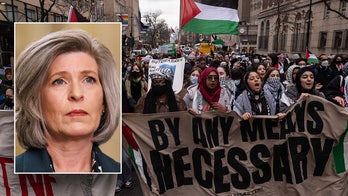California faces shortage of mental health resources to deal with homelessness
Dr. Marc Siegel discusses California struggling to deal with mental illness among the homeless, says the state wants people out of hospitals and jails.
California Gov. Gavin Newsom's major proposal to overhaul his state's mental health system would strip over $700 million from annual services provided by county governments and reallocate some of that money toward housing the homeless, according to a new assessment by the California Legislative Analyst's Office (LAO).
Newsom and state lawmakers are pushing large-scale changes to the Mental Health Services Act (MHSA), which imposes a 1% tax on personal income over $1 million to fund mental health services. The governor wants the California Legislature to put his proposal before voters on the ballot next year along with a $4.68 billion bond to add psychiatric treatment beds across the state.
Most of the revenue from the MHSA — at least 95% — currently goes straight to counties, which use it to support a variety of services to treat mental illness. The law establishes broad categories for how counties can spend the funding, but the counties have flexibility to direct much of the resources as they see fit.
Newsom's proposal would still have 92% of the funding go to counties but shift the focus of the allocations toward housing and full-service partnerships (FSPs), which are comprehensive programs for people diagnosed with serious mental illness. The new measures would also place stricter rules on how counties can spend the money, reducing their discretion and flexibility.
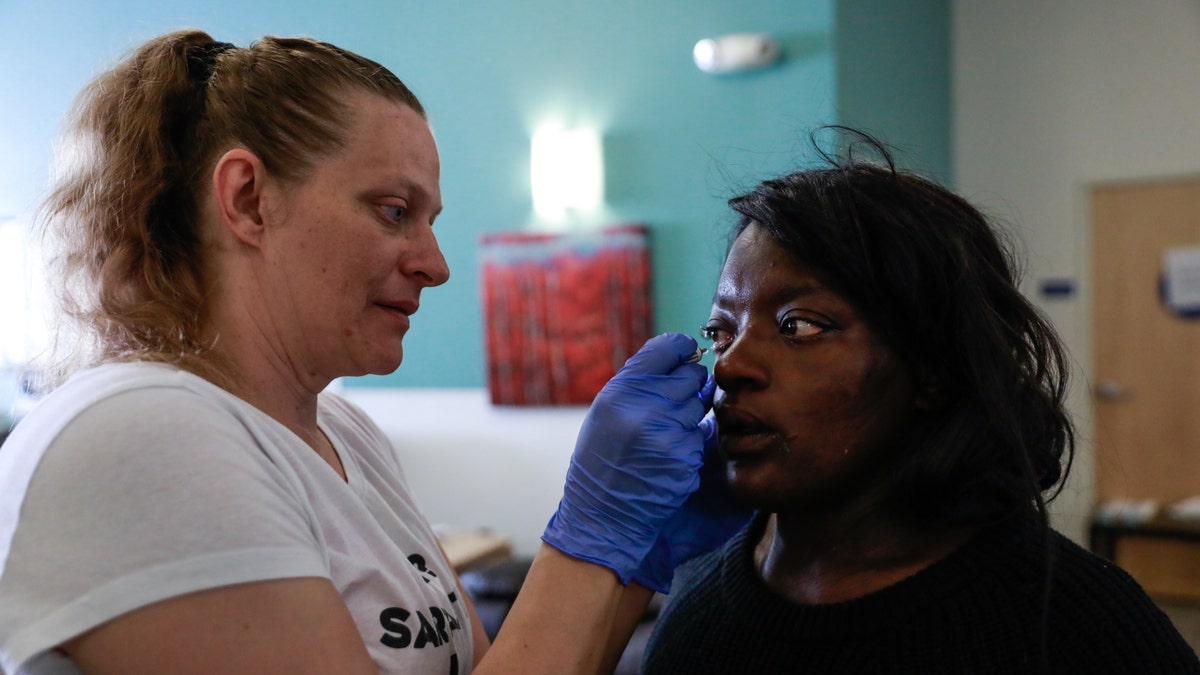
Nurse Michelle Absher (left) administers medicine to Breanna Blueford's eye at the Dore Urgent Care clinic, which is a crisis drop-in center for mental health needs in San Francisco, June 10, 2019. (Gabrielle Lurie/San Francisco Chronicle via Getty Images)
Specifically, counties would be required to spend 35% of funding on FSP programs and 30% on "housing interventions." Half of the latter funds for new housing would be required to be used for people who are "chronically homeless."
The category that affords the most spending discretion to counties under Newsom's proposal is Behavioral Health Services and Supports (BHSS), which would receive 30% of the funding for various mental health services not provided under FSPs.
According to the LAO analysis, counties would need to increase spending significantly on FSPs by $121 million, or 23%, and on housing by $493 million, or 218%, to reach the proposed funding targets.
At the same time, counties would need to redirect or cut spending on BHSS programs from around 60% of MHSA dollars to at most 30%. This would translate to a reduction in various mental health services under the BHSS category by $719 million, from $1.34 billion to $621 million, according to the LAO's assessment.
"We find that the governor's proposal would reduce overall county discretion and likely result in counties spending less on a number of current programs," the LAO report states, adding that the Newsom administration hasn't provided an assessment of how the governor's proposed changes may "negatively impact current [mental health] services" and therefore must answer key questions about its plan.
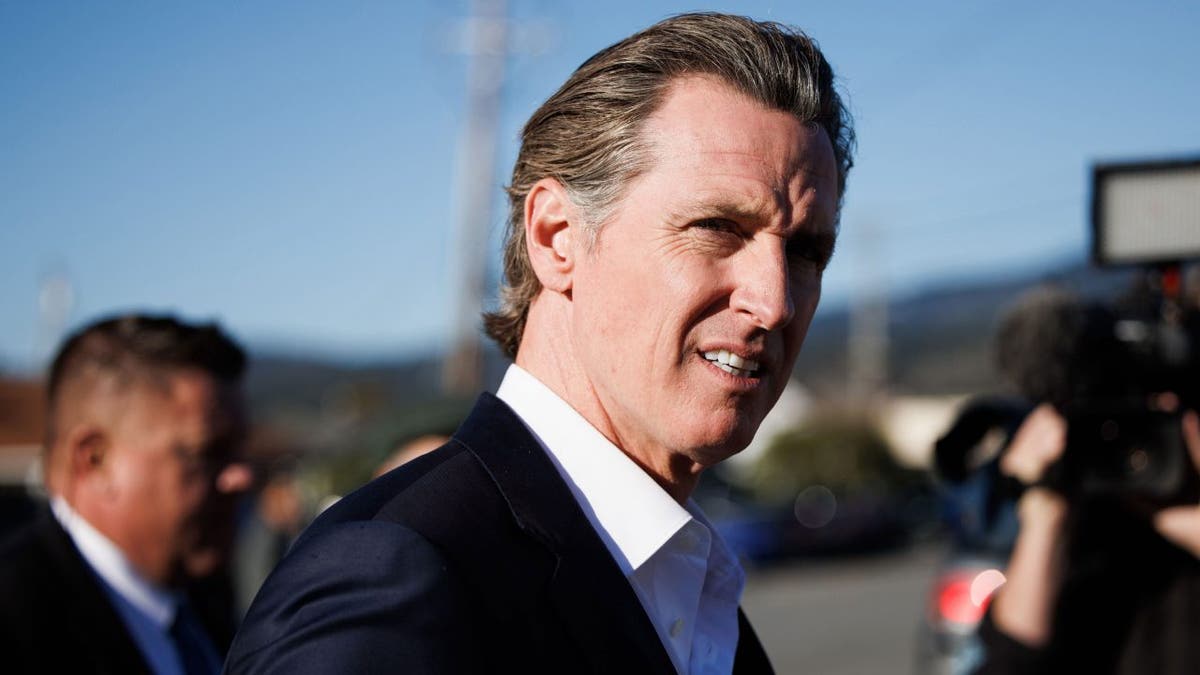
California Gov. Gavin Newsom heads to a press conference in Half Moon Bay, Calif., Jan. 24, 2023. (Dai Sugano/MediaNews Group/East Bay Times via Getty Images)
Critics have argued Newsom's proposed changes would result in significant cuts to current programs, including those that support children.
"We find that the administration's justification of its proposed changes is incomplete, and we provide several questions for the legislature to ask the administration to assess whether the proposal is warranted," the LAO wrote.
The analysis then goes on to list the questions that it recommends the legislature ask of Newsom, including one addressing a key criticism of the governor's proposal — that it could pit mental health programs against homeless services.
"While research supports the administration's proposed interventions to improve outcomes for individuals experiencing or at risk of homelessness, MHSA services benefit a broader population of Californians," the LAO report states.
"Consequently, some beneficiaries of MHSA may no longer receive certain services under the proposal. On net, can the administration provide evidence that the proposal is likely to result in better behavioral health outcomes for the population as a whole? Why does the administration propose using the MHSA as opposed to other funds to support the priorities reflected in the proposal?"
The LAO also notes the Newsom administration "has not yet sufficiently articulated" how its proposal "complements" a recent major initiative approved by the legislature — the Behavioral Health Bridge Housing Program — to provide housing support to homeless people with behavioral health conditions.
Overall, California has by far the most homeless people of any state. On a single night last year, 30% of all individuals experiencing homelessness in the country, or 171,521 people, were in California, according to data from the Department of Housing and Urban Development (HUD).
The state with the second-highest number of homeless was New York at just 13% of the country's total, or 74,178 people.
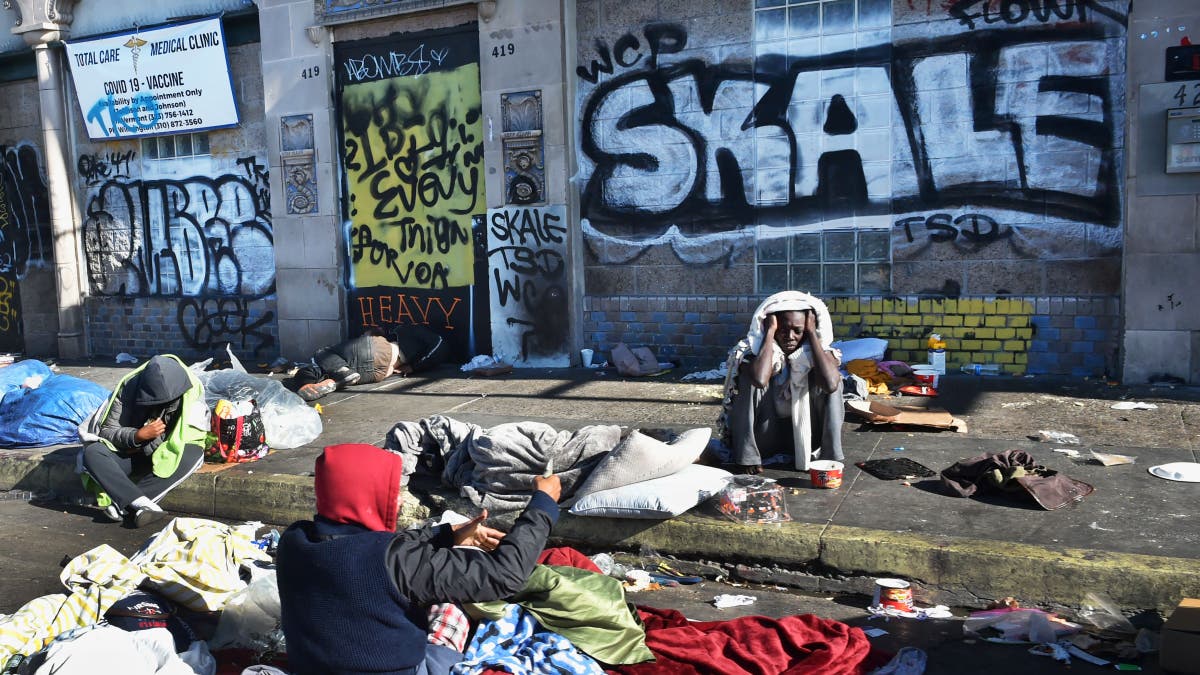
Homeless on the streets of Los Angeles Feb. 16, 2022 (Frederic J. Brown/AFP via Getty Images)
The HUD data also showed the Golden State accounted for half of all unsheltered individuals in the country, or 115,491 people, which was more than nine times the number of unsheltered people in the state with the next highest number, Washington.
California additionally had the highest rate of homelessness, with 44 people experiencing homelessness out of every 10,000 people in the state. According to the HUD data, Texas and Florida had a high total number of homeless people, but their rates of homelessness were lower than the national average of 18 people per 10,000 (12 for every 10,000 people in Florida and eight for every 10,000 people in Texas).
CalMatters noted in a recent report that while the Lone Star State has recorded a 28% drop in homelessness since 2012, California's homeless population grew by 43% over the same period. Los Angeles has been the hub of this surge in homelessness.
California has spent more than $20 billion on housing and homelessness since 2018, and Newsom has announced his intention to divert nearly one-third of MHSA money to address homelessness.
Two-thirds of homeless people experience mental health issues, but income loss is the No. 1 factor driving the state's homeless crisis, according to a recent study by the University of California, San Francisco.
A spokesperson for Newsom acknowledged that the homeless crisis has worsened and said that's one reason why the proposed changes are necessary.
"The world has changed, and the Mental Health Services Act needs to too. … The MHSA's status quo is not acceptable as society-wide responses have caused the gaps in care to change," the spokesperson told Fox News Digital. "Californians' most urgent needs have changed too. Long-standing challenges with substance use, community mental health capacity and homelessness have only gotten worse in the decades since."
GOV. GAVIN NEWSOM APPROVES COURT-ORDERED MENTAL TREATMENT FOR HOMELESS
The spokesperson added that the proposed changes are difficult but mandatory to address priorities such as "housing for people living in tents with untreated mental illness or substance use," as well as other mental health issues.
Beyond homelessness, another question by the LAO addresses the potential trade-offs of reducing the flexibility of spending at the county level and putting more power in the hands of California's administrative state.
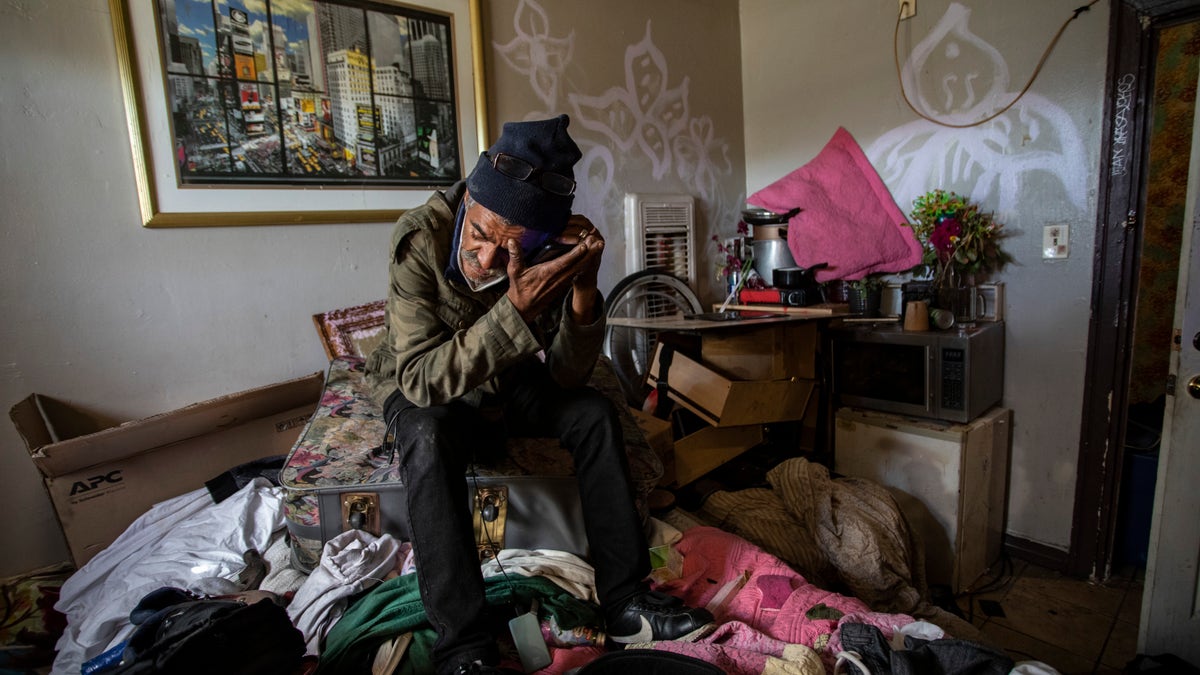
Henry knows Valerie doesn’t want to come back to the motel room because of the rats. So, he reaches out to supporters for help in getting a room in a new motel in Los Angeles May 8, 2021. (Barbara Davidson/ Getty Images)
"In effect, the proposal would shift the discretion in setting MHSA funding priorities away from counties to the administration," according to the LAO. "This potentially deprives the state of county-level expertise in program implementation and understanding the needs of its residents.
"The legislature may wish to ask the administration, along with counties, about the trade-offs of reducing county flexibility in MHSA spending. Additionally, the legislature should consider whether the shift towards a top-down approach in the use of MHSA funds aligns with the legislature's vision of the program."
The LAO also suggests the legislature ask Newsom's administration for more information on how his plan would impact individual counties.
Newsom's spokesperson stressed that the MHSA changes would "still maintain local flexibility to match local needs and priorities" and create better transparency and accountability.
CLICK HERE TO GET THE FOX NEWS APP
"Yes, this means upsetting the status quo," the spokesperson said. "But what's more upsetting is watching people continue to suffer on the streets with ineffective interventions and inability to access much needed treatment."





